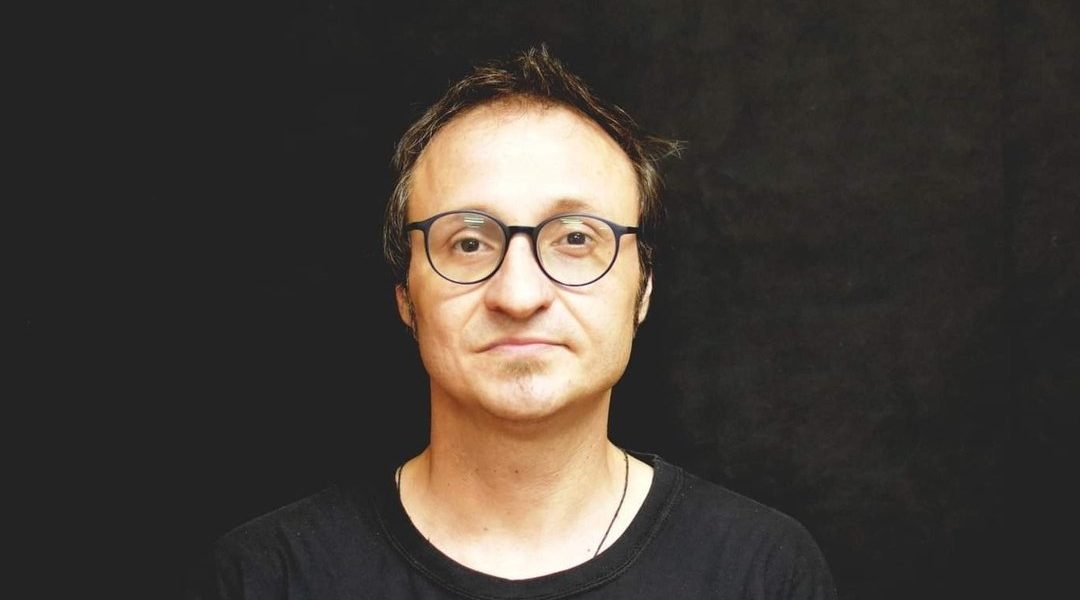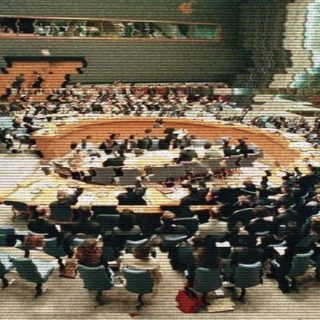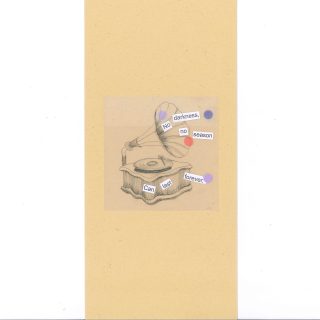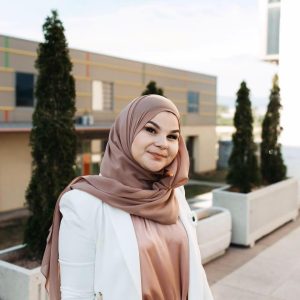Ever since 4-5 years ago, a young man from Pro Peace (at that time forumZFD) suggested that we join forces with this organization and create media content. We, as Radio MOF [YEF], as a small non-profit and youth media with over 10 years of experience – immediately accepted, since we realized that the organization had down-to-earth and sincere intentions that endorse unification rather than division. Reconciliation rather than strife. Dealing with the conflicts of the past rather than using them for new divisions. Great!
That, was commendable, as Radio MOF [YEF] is inclined towards sharing, regardless of whether that is social, cultural, multi-ethnic, multi-national… Our focus is on civic initiatives that bring positive change in the community. That is why we received recognition from the journalist community as a “Community Media”. Hence, this was an occasion to sit down at the table with Pro Peace and come up with something in common. An additional reason to strengthen the cooperation between the media and the civil sector, to give additional value and, at the same time, to think about how this cooperation would bring benefit for the future. For everyone, not just for our annual reports.
This column, tractate, or whatever you want to call it, is a reflection at what we have achieved together to date. To serve as an example that, well, that cooperation works. That we can, with our mutual strength, capacities, knowledge, and equipment, achieve something important.
What did we do?
If I remember correctly, the first thing we did were the joint audio podcasts for “Balkan Perspectives”, the regional magazine supported by Pro Peace. Journalists were tasked with turning on the microphone and being presenters, and the topics, among others, were about the peace movements in the countries of the Western Balkans, then about the role of the EU in dealing with the past, but also about young generations, among other actors, and the fact that they play an essential role in building peace and reconciliation processes at the local, national and regional levels. At the same time, we dedicated a special podcast called “War Never Again” through the prism of the current aggression against Ukraine, and we also talked about museums and their creative potential in reconciliation.
What we next worked on together, to my delight, was the journalist analysis: “Overcoming the prejudices of the past through TV, theatre and music”. At the table, we talked about how all of these are media and, more or less, help raise pluralism and tolerance, as well as overcome stereotypes and ethnocentric narratives in popular culture. The TV series “Nashe maalo [Our Neighbourhood]”, which aired from 1999 to 2004, where the building called Carmen came alive and spoke, was an excellent example of coexistence and interethnic understanding throughout five television seasons. “Nashe maalo [Our Neighbourhood]” was a spitting image of various neighbourhoods in Macedonia. Everyone had a neighbour or friend of “that” nationality, which was presented as an advantage, not a disadvantage.
On that topic, we also featured the director Dragana Gunin, who, in addition to Macedonian, stages plays in Albanian and Turkish, which enables the theatre to communicate with the audience on a deeper level. Also, one of the examples of how popular culture brings us closer is through music. In Macedonia, such multilingual examples are, among others, set by the Albanian-Macedonian rock band from Skopje “Bla”, formed in 1988, then the singer Arben Beni Shaqiri with his band, but also the Tetovo band “Kepurdat”. All of them were worth mentioning, but at the same time it was an excellent reminder for us, journalists, that they are a historical phenomenon, important even today.
When it came to the next round of products, we wanted to break out of the primary mould and connect dealing the past with current issues, through a series of articles.
We wrote a text entitled “Let’s not ask children what they want to be when they grow up, but rather what they will do for the others and how will they help”. We started from that conclusion, that young people should not grow into selfish individuals from a very young age, but that their profession/activity should be based on solidarity, proactivity, have some kind of a goal, and then that should be transformed into a collective commitment to social, educational, cultural, or interpersonal changes in general, including reconciliation and dealing with human rights violations after armed conflicts. First of all, primarily on a local, and then on a broader national level. If we continue to repeat the saying that it is “important to do something, just for the sake of doing it” or give wind in the back to one-way career tracks, we are only adding (more) fuel to a dysfunctional capitalist machine that produces disinterested, apathetic and docile people. On the other hand, there are also individuals who are closed-in and who are focused solely on their personal success, in a constant pursuit of “status”, without any idea or desire to connect with the needs of the local community. Hence, we go around in circles, while society is stuck in its own inability to help itself.
We also wrote about corruption as an everyday occurrence in Macedonia. It starts with a coffee bag or a cake given to the doctor, as a “pay back” from mom and dad for a job well done on their child, even though (s)he is just doing her/his job. Corruption is present from preschool to university, as a manner of “accelerating” the educational process. It is present in the police, the judiciary, politics, it is present in paying off someone for getting a favourable parking space, for passing the driving test, or even when we give beer to the plumber for fixing the tap at our home. The level at which it occurs is the only difference. In many cases it is something which is done on a voluntary basis, but corruption is a profound generational problem in hybrid-regime countries like Macedonia. Corruption has entered tradition, and at the same time it is a collective deficiency from the past and requires effective education, here and now, partnered with joint action by civil society organizations and the media, in order to put positive pressure on decision-makers. That is why it was important to treat and challenge corruption from the perspective of dealing with the past.
Most recently, in 2025, together with Pro Peace, we launched a new series of video podcasts “Balkan Perspectives”. Professionals from different areas of society talk about their experiences and the manner in which the consequences of the 2001 conflict, the Ohrid Framework Agreement and reconciliation are reflected in their professions. Starting from the controversial project “Skopje 2014” all the way to divided public squares, the first podcast explored the role of architecture in collective memory, identity and reconciliation processes. In the second, Ana and Risto, as youth workers, talked about how their peers from different ethnic communities socialize, cooperate and understand each other today. We also raised the following question: “If the world has become a field for intergenerational outsmarting, will our youth be able to outplay the dirty games of Macedonian politics?”
Why is all this important?
Through the very media products, we were reminded of what it means to deal with the past, but at the same time we were reminded that avoiding a black-and-white perspective, showing empathy, and striving for reconciliation are sometimes difficult struggles in the Balkans, a place whose history is mixed with solidarity and bloodshed.
I have to admit that that was good for journalists too. It was a good experiential reflection, because if a journalist wants to build a critical relationship with a topic, it is best to “immerse” herself/himself into the story completely. Ever since I worked at the printed newspaper “Utrinski Vesnik” from 2010-2015, my colleagues there taught me to go in the field, take statements, talk to citizens, write about a certain topic, to feel it from the “inside”. That is, to enter people’s “homes”, enter their lives. People of different nationalities and ethnicities. People who are experts, lawyers, doctors. People who are knowledgeable. People who grew up with privileges, but also people who were left on the streets. People without jobs. People with historical traumas. People without access to social and health services. People who are refugees. People without parents. People with impaired health. People with developmental disabilities. People who cannot make “connections”. People without anyone in the world! I learned things that I didn’t know I needed to know. I then transferred their life experience onto paper, and afterwards analysed and commented on the topic.
This (was)is important, because later I (would) already have built an attitude towards the issue and at a press conference I (would) know how to ask the right questions to the right people, so that there (would be)is real movement on the topic, and not just mentioning data, theories or empty stories. The same applies to podcasts, where journalists are not just microphone holders or simple interviewers on topics for dealing with the past, but they provide the needed critical review. They need to place their own mark and give their input, to advocate for a solution themselves, instead of maintaining the status quo.
This type of advancement of the journalists is of exceptional importance for them so as to maintain their relevance in the eyes of the public, especially at a time when there is an erosion of trust in the media. Certain media and portals impose their own rules and do not adhere to the Code of Journalists, accepted by the professional media community, and this in turn reflected on us. Plus, propaganda and disinformation do their part. The Internet as a society has contributed to our democratization, and that is a fact, but we realized that it can be dirty and does not always follow the ideals of the French Revolution. In our e-mail inbox, they tell us that we are “mercenaries”, “freaks”, “Sorosoids”. We learn to live with that. It is difficult, especially for young people, who rarely want to study journalism or enrol in studies – in recent years, 4-5 people in total on all faculties throughout Macedonia! And, in such a situation, when journalists are running out, democracy in the country is also running out.
That is why it is important for journalists to restore trust, among other things, by covering important topics and cooperating with the civil society and relevant organizations. And, trusted and professional media – can make key changes in the Western Balkan countries.
Finally, I will just remind you of a statement by Ivo Antov, included in the texts we published with Pro Peace. Antov was a producer on the popular TV series “Nashe maalo [Our Neighbourhood]”, very influential and successful in creating connections and exposing the prejudices of the past:
“Everything was intended for education and general understanding. We had a lot of fun, and I see that the actors themselves influenced that entire generation. An entire generation grew up with ‘Nashe Maalo [Our Neighbourhood]’ and those people are, nevertheless, modelled in a better way than those who grow up in an era of hate and anti-hate, woke and anti-woke, cancel and anti-cancel, where polarities, rather than commonalities, are being emphasized.”
Bojan Shashevski




